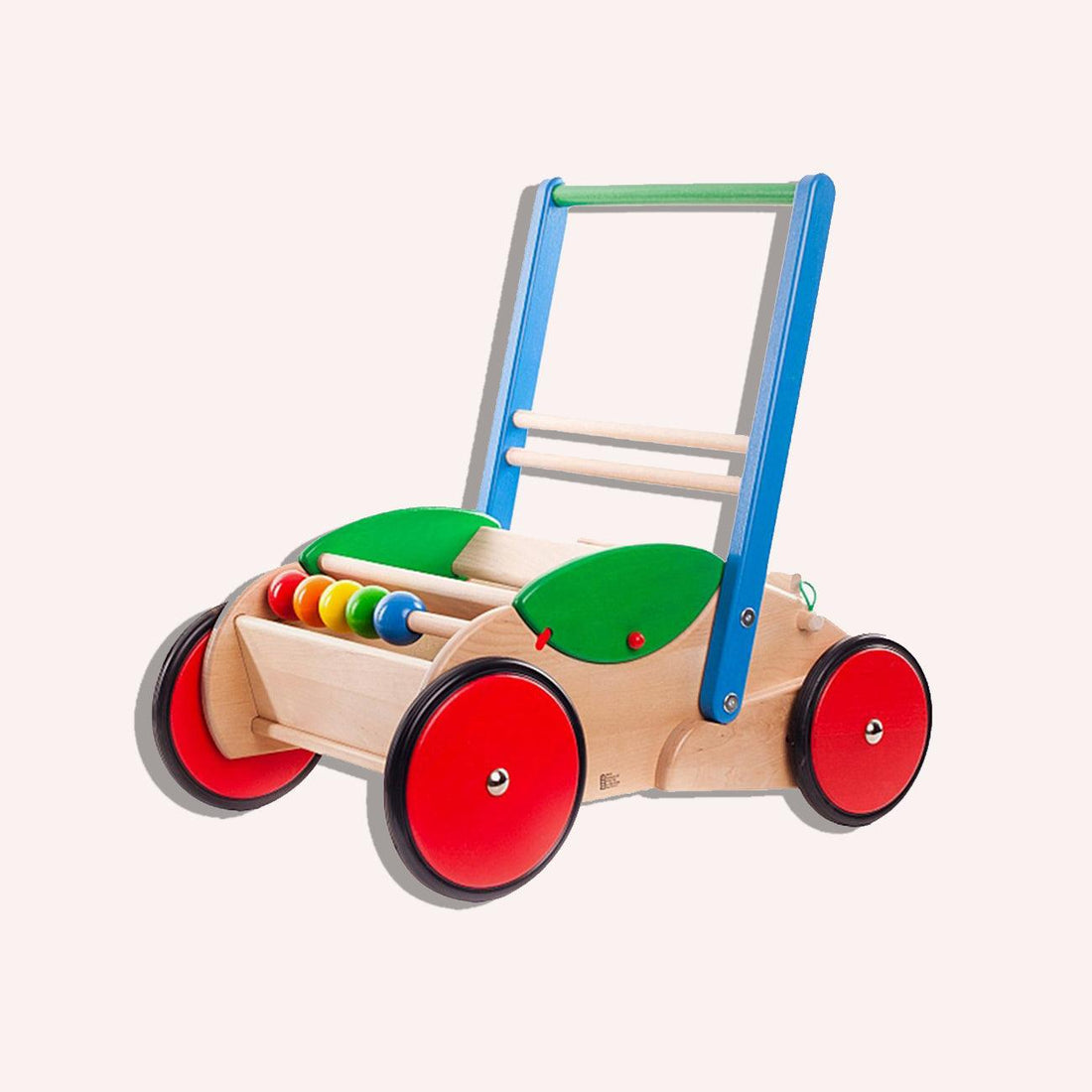From baby to beyond!
When you were dealing with an upset infant, you may have longed for the day that they could just tell you what they want, or walk themselves, or feed themselves in a seat at the dinner table. All those things become possible with the arrival of toddler season, but so does free will and resistance. It’s a whole new world. Toddlers are playful, funny and ready to surprise you with new tricks at every corner. It sure keeps life exciting. To help you get the jump on what your kid has in store for you over the next two years, here’s how to transition your set-ups, schedules and gear for life beyond baby.
Firstly, time for hand-me-downs
When an influx of “new” is pending, it’s a great opportunity to pass on the old. It takes about a year to realise you can’t keep hoarding your favourite pieces from each outgrown size *tears*, so take the time to sort, donate, pass-on or store what you really want to keep. Do this for toys too. Even with COVID restrictions, most Toy Libraries are open and taking donations.
Sleep: When do toddlers stop napping?
By now you no doubt have a seamless routine in which your baby sleeps through all night, every night, simply by laying down in the cot. KIDDING. That’s not true for anyone. But statistically they (and you) are probably getting more sleep and though getting them down might be tougher. Toddlers love to test their independence. Just with babies, a firm sleep schedule greatly helps with this. Every 24 hours toddlers need 12-13 hours of sleep, usually 10-12 at night, and two hours of napping in the day. A typical schedule is 7am wake up and 7pm bedtime, though some toddlers will wake between 5:30am and 6am and, to quote the Raising Children website, “there isn’t much you can do about this”. They advise you to start going to bed earlier yourself. Thanks, guys. Whatever you do, don’t try putting them to bed later, it only makes things worse. Have a nice wind-down routine: bath, brush teeth, story time, bed. Sleeping bags are recommended up to 24-months and more, but you might want to invest in ones with individual legs. These mean you can go from sleep bag to sleep suit, which comes in handy for wrigglers and for when you transition from cot to bed (usually between 2 and 3.5 years). It also means they can toddle around in the colder mornings without needing a full outfit change.
Gear
backpack. Toddlers are always in motion, and sometimes you might not take the pram, or you’ll be chasing them over play equipment, and a backpack lets you easily keep everything close but still have your arms.
When do toddlers start talking?
First things first, this is different for every child. However, from around 6 months of age children generally start to make sounds and might say their first words from between 10-15 months old.
What to do with toddlers?
Playtime really kicks up a notch in the toddler years. It also takes up more space than the cute basket of assorted toys that inconspicuously sits in the corner. But, play time is learning time, and you want to encourage learning. So you can sacrifice your nice, neat living room for a couple of years. If you can, dedicate a play space where your toddler can go to their toys and independently choose what takes their interest and how they interact with it. This is called unstructured play, and is the most important for your toddler. It helps them develop skills and confidence, and build relationships. From one, kids can really become interested in imaginative play, which is important to their emotional development. This means it’s time for a dressup box (no doubt you’ve been waiting for this moment). You’re encouraged to read to them everyday, engaging them with interactive books, or by asking them questions about the characters, “what sound does a dog make?”, and to repeat the sounds they make back to them. This encourages a game of repeating, which they will play back to you, repeating words (real words) that you say.
How to get toddlers to eat veggies?
Food becomes a lot more fun after one, and usually easier, because everything’s on the menu! Remember that fussy and messy eating is totally normal, as is refusing to eat. Toddlers like to test the boundaries, you know? If you're trying to get them to eat veggies, don't put too much pressure on it. You can try:
- Disguising the veggies in their favourite meal
- Experiment with cooking them in different ways to change their appearance and taste
- Make it a cooking game and have them select their veggies for their sandwich or pizza topping
- Cut up carrots and celery into sticks and serve with dipping sauces
- Just keep trying!
If it works with your schedule, eating dinner as a family is a great routine to keep. Make it regular, pleasant and low stress to encourage healthy eating habits. Toddlers like options in how they eat, as well as what they eat, so offer cutlery, and they love dipping. If suitable, give them a side sauce. Contrary to belief, kids don’t really like bland food, or eating something different to everyone else, so when it works, serve them up what you’re having!
If you're still looking for tips on how to get a great night's sleep routine going, read more here. Is your little one starting day care? Read more on what to expect here. Planning the first birthday? Discover all you need to know in our blog post.













